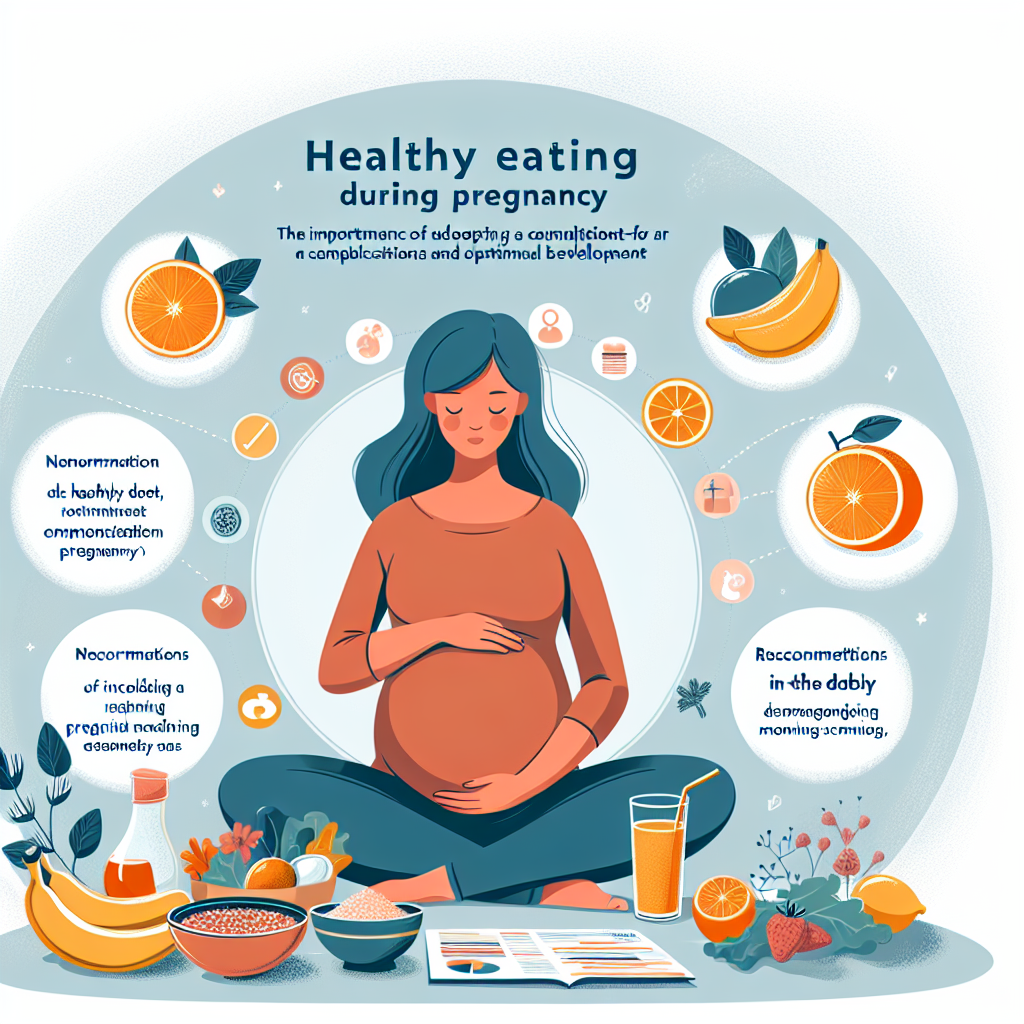Healthy Eating in Pregnancy: The Complete Guide
Introduction
Pregnancy is one of the most beautiful and important periods in a woman's life. It is the stage in which the expectant mother lays the foundations for the health of her child even before birth, and nutrition plays a crucial role in this process. Therefore, it is essential that mothers-to-be understand the importance of a balanced diet and know the main nutrients needed to support the optimal development of the baby.
The importance of proper nutrition during pregnancy
During pregnancy, a woman's body goes through many changes and needs additional nutrients to support the development of the fetus. A balanced diet rich in vitamins, minerals, fiber, protein and healthy fats is essential to prevent complications during pregnancy and to ensure the proper development of the child.
The main food groups and their role
Protein is essential for the growth and repair of body tissues, including those of the developing baby. Good sources of protein include lean meat, fish, eggs and legumes.
Carbohydrates provide the necessary energy for the pregnancy to proceed smoothly. It is important to opt for complex carbohydrates, such as whole grains, fruits and vegetables, which also provide an important supply of fiber.
Healthy fats , such as those found in fish, olive oil and nuts, are vital for baby's brain development and help the mother's body absorb fat-soluble vitamins.
Vitamins and minerals , such as iron, calcium and folic acid, are also crucial in a pregnant woman's diet. They help prevent birth defects and support the overall health of mother and child.
Foods to avoid during pregnancy
There are also certain foods that should be avoided or eaten with caution during pregnancy. Raw or insufficiently prepared foods, as well as potentially allergenic or mercury-rich foods (certain types of fish), can pose risks to the health of the fetus.
Cooking methods and meal planning
Cooking food at the right temperatures and using healthy cooking methods, such as boiling or baking, can help prevent health problems. It is also important to plan meals in advance to ensure variety and nutritional balance.
The importance of hydration
Adequate hydration is extremely important during pregnancy. Drinking enough fluids helps maintain adequate blood volume, transport nutrients, and remove waste from the body.
Examples of balanced menus
An example of a balanced menu throughout the day might include a breakfast of oatmeal and fruit, a lunch of baked chicken and a varied salad, and dinner of grilled salmon with steamed vegetables. Snacks can consist of fruit, yogurt or a handful of nuts.
Conclusion
Choosing a healthy diet during pregnancy not only ensures the health of the expectant mother, but also lays the first foundations for the health of her baby. By adopting a balanced diet and monitoring the food consumed, pregnancy can be a period full of joy and expectation, without unnecessary worries about the health of the child. Always remember to talk to a doctor or nutritionist for personalized advice tailored to your needs.














































































































































